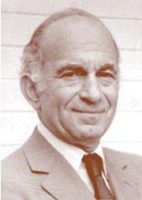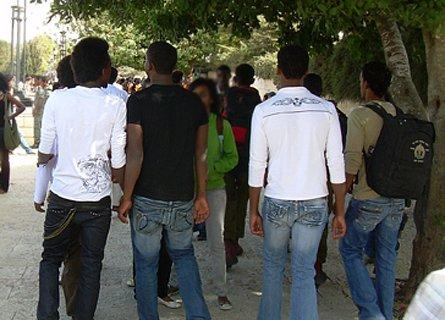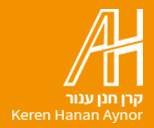For the past two decades, the Foundation has distributed over 4572 scholarships in over 90 fields of study. Beyond the financial assistance, the education program offers guidance and support to students as they realize their dreams of completing academic degrees.
Aynor headed the Israel-Africa Friendship League until his death. During the many years of his work in and on behalf of Africa, Aynor formed a strong attachment to Ethiopia and dreamed of bringing its Jews to Israel. Keren Hanan Aynor has become his legacy, helping to ensure a future for Ethiopian Jews in Israel.

1975 – The Israeli government confirms that the “Law of Return” applies to Ethiopian Jews.
While Ethiopian Israelis have made many strides in Israeli society during the past two decades, their overall picture, as compared to the rest of Israeli society, still remains bleak. According to recent studies by the Israeli Central Bureau of Statistics, only 30% of Ethiopian Israelis (compared to the national average of 50%) complete their high school matriculation exams. The average Ethiopian Israeli household has a monthly income of only NIS 7,328 (~ $1,800), compared with an Israeli national average of NIS 12,010 (~$ 3,000).
Furthermore, there is a far higher incidence of single-parent households, 23%, more than twice the nationwide percentage.
All of these realities lead many highly talented and motivated Ethiopians Israelis to succumb to economic and emotional pressures and to remain trapped in a vicious poverty cycle which does not enable them to fulfill their potential as the highly-educated contributing members of Israeli society that they long to be.
Fortunately, there is no shortage of talented and motivated Ethiopians, and if not for lack of financial resources, many more would presently be enrolled in higher academic institutions.
At present, Keren Hanan Aynor turns away over 60% of our qualified applicants due to lack of funds. On a regular basis, it comes to our attention that students who have been turned down by our program due to lack of funding, have either taken a leave of absence from school for a year or have left academia completely. This type of finance-related dropout is directly impacted by the number of scholarships which we are able to provide each year.


Keren Hanan Aynor Topaz St. 1b Mevaseret Zion 9079375
053-9195036
Copyright © 2021. All rights reserved to Keren Hanan Aynor.